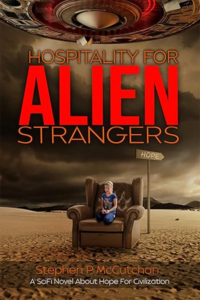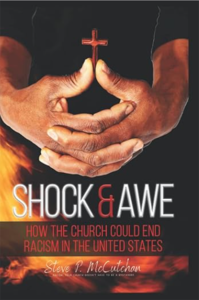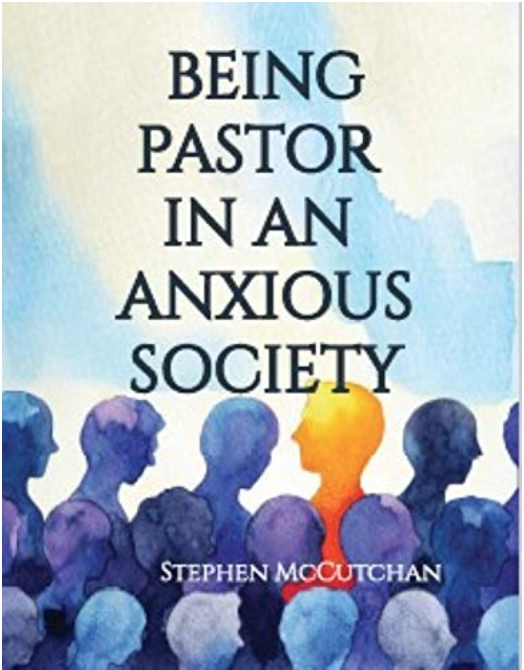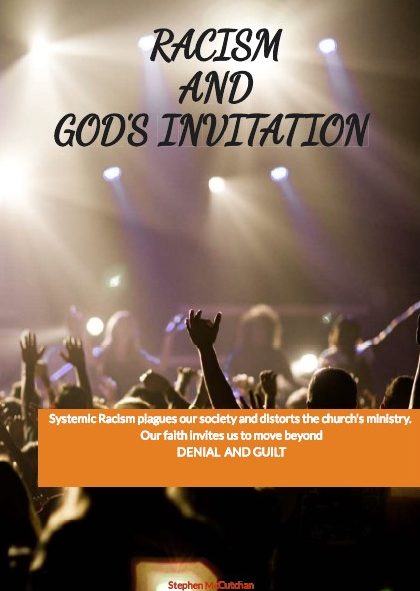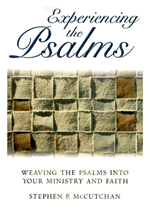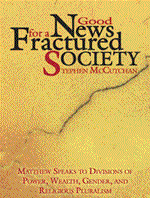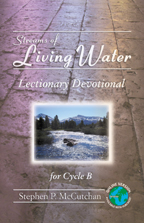Prepared for The Center Of Theological Inquiry
By Stephen McCutchan
June 9, 2007
My 10 year old grandson who attends public school in Arlington, Virginia was recently moping around the house appearing to be totally bored. His father, who works in an office at the house, suggested that maybe he should call his friend Henry to see if he wanted to play;
“I can’t do that, Dad.” was his reply.
“Why not?” his father asked.
“He’s Muslim, Dad.”
Suspecting that his son’s comment revealed some subtle prejudice that needed to be nipped in the bud, the father replied, “And what is wrong with his being Muslim?”
To which his son replied, “Dad, its Ramadan. He can’t play during Ramadan.”
My grandson is being reared in a world that is in marked contrast to the world in which I was reared. When I was a child, adults were concerned that Protestants and Catholics might marry. As time progressed and more and more protestant-catholic families became a reality, the next concern was that a Christian and a Jew might fall in love. Ironically, our parents were more comfortable with their child dating an atheist than they were a person of a different faith.
The challenge continues to expand as our neighborhoods and even our families become more pluralistic. Today we are regularly in contact with Muslims, Buddhists, Hindus, etc. We are living in a pluralistic world in which we not only encounter other cultures due to the ease of transportation but often because people of different religions and cultures are our neighbors and occasionally even are part of our families.
The issue of pluralism is no longer an esoteric issue that is of concern only to the cosmopolitan elite. It is an evolving issue that touches people in all walks of life and in all sizes of community. It is also the harbinger of a much larger issue that is facing the Christian community. I would suggest that we are living in a time of the death of nations. Nothing will happen abruptly but the signs of this seismic shift are apparent.
Think of the signs of the blurring of national lines. In the area of economics, national boundaries are blurring in a variety of ways. Corporations not only quickly move their operations to wherever it is cheapest without regard to its effect on the home nation but they also establish off shore headquarters to avoid taxes. By virtue of being trans-national corporations, they are less and less subject to the controls of nations. Frequently their top personnel and Boards are made up of people whose culture and nation of origin are widely diverse. The combination of wealth, power, and the focus of their energies increasingly diverts their loyalty away from the nations of their origin and towards that which benefits the corporation.
Individuals among both the rich and the poor increasingly ignore national boundaries. An example of economics taking precedence over patriotism was printed in the August 1 issue of the Winston-Salem Journal. It told of the offshore tax havens holding trillions of dollars in assets and allowing wealthy Americans to avoid paying $40 billion to $70 billion in taxes each year. Imagine what that would do to the ability of this country to attend to the needs of the less fortunate and the infrastructure of our country. Despite the fact that it was in being residents of this country that enabled them to acquire much of their education and opportunities that led to their prosperity, their wealth and holding on to it transcends their loyalty to their country. Compare that to several of the signers of the Declaration of Independence who lost much of their wealth because of their loyalty to this developing nation. Similar type behavior can be found among the wealthy who reside in other nations.
Ignoring national boundaries can also be seen among the poor of the world. Many nations are experiencing the challenge of immigration because poor people do not value national boundaries over their economic survival. They are willing to risk their lives in order to find work. Then they send a large portion of what they earn in one country to another country in order to support their families. In some Central American countries, such transfer of funds across national boundaries has a significant impact on the nation’s economy.
Nations are also increasingly blurring their national boundaries. For example, increasingly many nations are entering into Free Trade pacts that remove national boundaries from protectionist regulations. The European Union is even experimenting with a common currency.
Culturally there is a vast sharing of media, especially music, that transcends the national boundaries and even the language boundaries. Movies are shared over the internet with the effect of breaking down cultural traditions.
Perhaps the most dramatic evidence of the threat to the old lines of nations is what is taking place militarily. The movement that is loosely described as terrorism has democratized war. There is no longer the necessity of having a vast military establishment in order to oppose a country’s power. When we were attacked on 9/11, because we were locked into a mindset that saw all enemies as having national origins, we chose to respond by attacking another nation. The reality was that the terrorists didn’t belong to a government or a single nation. Our efforts backfired in creating a school for terrorism while denying the USA an obvious target against which they could respond.
Even religiously we are seeing a similar movement. The most obvious sign is that which is taking place among Episcopal churches in our country. When some of the churches became disenchanted with the direction of the American expression of this denomination, they chose to come under the oversight of a Bishop in Africa and assumed a position in the world wide Anglican community that is not defined by geography.
Tom Friedman, in his book The World is Flat, describes some of the forces that have brought about this new situation. Because of its potential impact on the way in which the church responds to this new reality, it is important to briefly summarize his thesis. According to Friedman, this enormous change in our world began with the development of the computer and the use of fiber optics in the exchange information around the world. He particularly identifies the release of Windows 3.0 on May 22, 1990. That was followed by the development of Web Sites, browsers, and fiber optics which enabled the inexpensive exchange of information unhampered by geographical distance. Unlike previous forms of communication, web pages allowed people to both share and interact with great sums of information . This creates an “all world” supply chain of knowledge and empowers individuals to participate on the basis of skills rather than degrees, location, or status. Common people are shifted from being an audience to participants.
The critical impact of this new information river is the empowering of the individual in ways that were undreamed of in previous eras. An individual, regardless of his or her location on the planet, has access to vast sums of knowledge for free. At the same time, this individual can connect with other individuals of like mind unhampered by geography.
The positive side of this is that creative individuals can connect up with the resources, knowledge, and support necessary to make a positive contribution to the advancement of humanity. On the negative side, people filled with hate, greed or personal alienation can both acquire a vast resource of destructive knowledge and also connect up with other like minded individuals to wreck havoc upon the structures of the world. Terrorism, in a variety of forms, is the result of this new accessible flow of communication. It is no longer necessary to have the vast resources of a nation to develop an expensive arsenal and fund a huge army in order to wreck havoc on your enemy. All you need is a computer, some smart people with radical personalities, and a couple of sources of wealth in fairly modest sums. Note, for example, the fact that the 9/11 attack on the United States utilized our own civilian planes and easily accessible flight schools along with wealth that had been produced by people in Saudi Arabia, a presumed ally of the United States.
Another result of this digitalized world that more directly impacts the church, is its impact on organized communities. Historically one of the strengths of the Christian faith was that it was a relational faith. People practiced the faith within a community. From the beginning there was a diversity within the community which over time served as a corrective to certain distortions that emerged within the faith. Even the geographical spread and cultural diversity of the faith served that purpose.
Now, however, there is the possibility of developing “virtual communities” of Christians who can communicate across great distances without having to expose their ideas to the general public. Because the information is delivered via technology, it has a ring of authority that helps build its virtual authenticity. Because the individual is empowered via the internet, each member of this community builds on the thoughts of the others, but within the context of clandestine thought exchange that creates an atmosphere of being over against the greater world. They convince each other of the truth of their position and strategize together on how to subvert the powers that disagree with them. Then, because they are geographically spread throughout the church, they can develop a coordinated plan to challenge the church in a way that threatens the unity of the Body of Christ. As has been demonstrated in the Episcopal/Anglican church, the geographical and institutional pressures for unity now face a counter force that leads to increased fractionalization.
It is important to recognize that these are outside forces bearing down on the church. This is not the first time that the church has been radically reshaped because of the impact of forces beyond the church. As Luke Timothy Johnson points out in his work, Early Christianity: The Experience of the Divine, the church has proved to be a very adaptive community of faith. Unlike most of the other major faiths of the world, Christianity was not focused on a geographical spot or wedded to a particular language or culture. While it was birthed in Judaism, it quickly moved beyond Palestine and adapted itself to different languages and cultures.
A quick review of some of the major adaptations in its history may be helpful. In the beginning the church was a small sect of Judaism. Next it moved into the Hellenistic world but remained a minority movement with few overt forms of power in its society. Its remarkable growth was not due to its status or power but largely due to its compassion for the less fortunate in society. Then, with the decree of Constantine in the fourth century, the Christian church suddenly became the established religion of society. The church that began as a servant community suddenly wielded power as it spread its influence around the world. While this change in status contributed to the spread of Christianity around the world, it also confronted the church with the temptations and corrosive effect of power on the church.
With the dawning of the Enlightenment and the resulting secularization of society, one can begin to see a trend towards the dismantling of the power of the church. First, the political power of the church to shape the state and demand obedience even from the rulers was removed. Where once the church could cause emperors to tremble with the threat of excommunication, today such power to sway governments is barely visible. How many governments now stand in fear of decisions made by the church? For example, while our government tried to dissuade the Catholic Bishops of America from taking a stance against nuclear armaments in the early ‘80s, this same government found no necessity of altering their government policies in response to the Bishops’ stance once it had been issued.
Second, through the Reformation, the power of the church to grant or withhold salvation and forgiveness slowly dissipated. Today the importance of confession has largely been removed from the church and, more frequently, is entrusted to the psychologist. In most Protestant churches, it would be highly unusual for the church to publicly call members to account for their ethical conduct. Even in the Roman Catholic Church, the importance of the confessional has largely waned in the lives of many very active Catholics.
Third, the capacity of the church to officially interpret scripture and to convey the tradition has been challenged. It is common for members to express disgust, if not anger, at the efforts of their denomination to make scriptural based pronouncements with respect to issues in our society. Clergy, who are presumably trained in the interpretation of Scripture, are frequently challenged by lay members as to the accuracy of their understanding of scripture.
Finally, not only the status of the clergy, but even the very necessity of the church, is being challenged. In a Gallup poll taken in 1988, 76% of Americans believed you could be a good Christian or Jew without attending a church or synagogue. Eighty percent believed that “one should arrive at one’s religious beliefs independent of any church or synagogue.” This attitude has continued so that today a vast number of those who verbally proclaim Jesus Christ as their Lord and Savior do not believe that the church is an essential element of their journey of faith.
While many still find that the church helps strengthen their faith, it is but one of many sources that they draw upon. If a situation occurred that caused them to choose to leave the church, they might leave with anger and even sadness, but it is unlikely that they would fear that in doing so they would be cut off from the means of salvation. The church once made bold to declare that “there was no salvation outside the church,” but today many question whether the church is even important to their salvation.
We live in a world that is increasingly pluralistic, loyalty to nations is waning, and the power of the church to command change has largely dissipated. For those of us who believe in the sovereignty of God, the question must be asked as to what God is calling us to do in this situation. Christianity has demonstrated a remarkable ability in the past to adapt to the changing situation in the world and continue to proclaim the Gospel in a redemptively powerful manner. What questions need to be asked and what actions need to be taken in order for us to faithfully proclaim the Gospel to our changed world?
In light of the above described disestablishment or disempowerment of the church, in the context of the sovereignty of God, one must ask if God is leading the church in an experience of relearning the servant nature of the Body of Christ. The third temptation to distort the ministry of Christ, and for the church to distort the ministry of the Body of Christ, (Matthew 4:8-9) was a temptation of power. In rejecting the satanic temptation to assume that power was necessary to facilitate one’s ministry, Jesus drew upon Deuteronomy 6:13 to remind believers that God is the source of our strength. Later in Deuteronomy 8, which Jesus also used to reject the temptation to turn stones into bread, Deuteronomy interprets the whole wilderness experience as a training ground by which God reconstructed their minds to understand that they must place their total trust in God and not be dissuaded by the needs and pleasures of life. Is it too much to suggest that the church may be traveling through its own wilderness as it seeks to discern the direction God is guiding it in this new world setting? Perhaps the loss of power will help us to learn again the wisdom of the early Christians that our “power” is in a servanthood ministry to the needy of the world. (See 2 Corinthians 12:9)
As the church seeks to reconstitute itself in response to the death of nations, it is necessary to recognize how easily we allow ourselves to be defined by familiar loyalties. Mark 3:31ff lifts up the example of the conflict of loyalties between one’s faith and one’s familial obligations. In this particular incident, Jesus redefines the meaning of family from one of blood relationship to one of obedience to God. In doing so, he reminds his followers that we belong to the family of God that transcends not only family loyalties but also national loyalties.
As Phillip Jenkins reminds us in The Next Christendom and The New Faces of Christianity, the population center of Christianity is rapidly moving out of the Northern hemisphere and finding its center in the Global South. As we discovered from those who wrote the early liberation theologies from South America, when you hear the gospel in the midst of poverty and the uncertainty of changing political conditions, it sounds different than when you hear it from either churches or universities that exist in relative stability and comfort. Hearing those conversations within the larger family of faith helps to clarify the cultural and contextual baggage of faith.
In an extension of the thesis provided by Tom Friedman in his book The World is Flat, our modern world has changed the nature of the faith conversation within our churches. As Friedman pointed out in other contexts, the individual, and by extension individual churches, have been empowered to be shaped by theology in a global context. Increasingly churches are not dependent on centralized denominations or theological schools to shape their Christian understanding. Frequently local churches have developed their own connections with churches in other cultures and arrange their own mission experiences that profoundly affect the theological understanding of their members.
Regardless of the position one takes on the recent developments within the Episcopal/Anglican divisions, we can see in these events the harbinger of the future as to the way that churches relate to each other. By virtue of modern technology, individual Christians can be in touch with their counterparts all over the world. A positive role that denominations might play in the future would be to facilitate these conversations by use of video conferencing and other communication techniques made possible by the computer and fiber optics.
Denominations, because in the last sixty years they have operated out of a corporate, centralized mind set, are struggling to adapt to this new situation. There is a natural temptation in a world in which nations are dying and we begin to lose our sense of identity defined by national boarders, to withdraw into a form of tribalism that defines us by ethnic, linguistic, sexual, or cultic characteristics. Both the scriptural witness and the history of the church, in contrast, would suggest that we should expand outward and not withdraw into smaller enclaves.
Underlying the difficulty in making these adaptations is the triumphalistic attitude that accompanied the development of Western theology. Such an adaptation requires a restored humility and a relearning of the lesson of the wilderness that our future is shaped by the God who leads us and not in our more restrictive traditions that at times hold us back.
In addition to these challenges within the Body of Christ, the Christian community is also offered the opportunity to reexamine their relationship with people of other faiths. Far too often our history as a church has been plagued by what I would propose as the heresy of supersessionism. While it was not true of early Christianity as reflected in the Scriptures, for example note Paul’s argument in Romans 9-11, by the time of Constantine when the church was placed in a position of power, the church developed an assumption that they had superseded Judaism. In brief, they asserted that by virtue of the larger Jewish community not accepting Jesus as the Christ, Jews forfeited their position as the chosen people and were superseded by the Christian community.
Ironically, Christians would later experience the same charge of spiritual failure lodged against them. First there was the Islamic faith that asserted that Christianity had failed and that God had transferred favor to the faith revealed to Mohammed. Then later Joseph Smith in America asserted that he had received a new revelation that shaped a Mormon faith that also superseded the failure of the Christian faith. In all three examples, the one who superseded the previous expression of faith saw the inherent danger of such supersessionism and asserted that their personal revelation was the final revelation. One could also see this same attitude within the Christian body that led to the various divisions known as denominations.
First the ecumenical movement and now inter-faith dialogue are seeking to reexamine the assumptions that led to divisions. For Christians such a reexamination needs to begin with Scripture. In the history of the church we have many examples of the need to reexamine our understanding of Scripture in light of our changing contexts. People were against democracy because the bible only spoke about kingdoms. In this country the institution of slavery was defended on the basis of Scripture as was the subordination of women. It is consistent with our journey of faith to allow God to speak to us about life through Scripture and about Scripture through our experiences of life.
The first factor that one becomes aware of when we look at Scripture in light of our question of the plurality of life is that Israel well understood that God was involved in the lives of people who were not part of the Jewish faith. In fact it is made very clear that the first eleven chapters of Genesis is speaking about God’s care and concern for all of humanity and not just the Jewish people. The covenant that was made with Noah in Genesis 9 was a covenant with all of humanity. In Genesis 14:17ff we meet the mysterious figure of Melchizedek who, though clearly not of the Jewish faith, was a religious figure in whose life God was clearly at work. Later the prophet Amos would suggest that God had covenants with other nations in the same way that God had a covenant with Israel, (Amos 9:7), and Isaiah 20:18 ff suggests that both the Egyptians and the Assyrians will be the recipient of God’s blessings and suggest even a form of inter-faith alliance that would develop. In Isaiah 45, the prophet even has the audacity to refer to the gentile ruler, Cyrus, as God’s messiah or anointed one. Islam traces their ancestry back to Ishmael who, in Genesis 17:20 and 21:18, is given a separate covenant. Israel is clear that they are writing the story of God’s wondrous work with Israel, but they reflect an awareness that they are only one chapter in the story that God is telling in the universe. Jesus builds on this same awareness in his sermon recorded in Luke 4:16-30.
For Christians, of course, the issue is focused on the person of Jesus as God’s anointed, which in Hebrew is messiah and in Greek is Christ. While we recognize that beginning with Saul, the kings of Israel were spoken of as the anointed or messiahs of God, and we recognize that God can choose even a figure outside of Israel like Cyrus to do God’s bidding, when we speak of Jesus as the anointed or Christ, we are speaking of something unique. For Christians to speak of Jesus as the Christ is to use that term to refer to the unique expression of God in the person of Jesus. “And the Word became flesh and lived among us, as we have seen his glory, the glory as of a father’s only son, full of grace and truth.”
The question that needs examining is whether that unique expression of God’s truth, seen in the person of Jesus, can also find expression in other ways even when Jesus is not explicitly named. Paul makes this explicit in 1 Corinthians 10:4 where he refers to the rock that fed the Israelites with water as Christ. “For they drank from the spiritual rock that followed them, and the rock was Christ.” The book of Acts also reads Christ back into Psalm 16 (Acts 2:25-28) and at the beginning of the Gospel of John the audacious claim is that the Word that became flesh even preceded the beginning of time. “In the beginning was the Word, and the Word was with God …” (John 1:1).
In all of these examples, no one was suggesting that Jesus appeared like some astronaut from outer space. Rather they were saying that God was present in Christ before God was manifest in the body of Jesus. What the New Testament writers seemed to be suggesting was that in Jesus they had recognized the Spirit of God that had been manifest in less concrete, but no less real, ways in their past. In Jesus’ being raised from the dead, it became clear that the boundaries of death and time could not contain the Christ.
The issue that we need to examine is whether Christ might be manifest in other expressions of faith as well. When the Gospel of John quotes Jesus as saying, “I have other sheep that do not belong to this fold. I must bring them also, and they will listen to my voice.”(John 1:16), is it possible that this gives us permission to listen for the Christ in other expressions of faith. Many a participant in inter-faith dialogue, such as Thomas Merton, has experienced a growth in their faith through serious listening and dialogue with people who practice a different faith than Christianity. The incident recorded in John 4:ff of Jesus’ dialogue with the Samaritan woman at the well is expressive of this respect for people of differing faiths.
For many Christians a key passage that informs their understanding of the relationship between the Christian faith and other faiths is that of John 14:6, “Jesus said to him, ‘I am the way, and the truth and the life. No one comes to the Father except through me.” This, of course, is preceded by Jesus statement, “In my Father’s house there are many dwelling places.”(John 14:2) Is Jesus suggesting in that statement that there is room for people of other faiths as well? Some theologians, such as Harvey Cox, have interpreted that statement to suggest just such a possibility.
How, then, are we to read Jesus seemingly exclusive claim to being the way, the truth, and the life and his assumption of a common identity with God. This is the challenge of the incarnation. We are not allowed the easy escape of believing Jesus is one among many prophets. But what are we to do with the other prophets and other religions?
Philip responded for us when he said to Jesus, “Lord, show us the Father, and we will be satisfied.” Jesus responded, “Believe me that I am in the Father and the Father is in me; but if you do not, then believe me because of the works themselves.” (John 14:8-11) Seen through the lens of Jesus’ works, the statement that Jesus is the way, the truth, and the life, take on a different meaning. Jesus’ life was that of a servant to the needy. Nothing he did was determined by how it would benefit him personally or build the size of his following. He demonstrated an accepting love that included even his enemy. He was critical of those attitudes and possessions that resulted in excluding the needy and separating others into classes.
To say that Jesus was the way, the truth, and the life is to say that the path to God is through serving those in need, offering forgiveness even to your enemy, and not letting either your religious belief or your possessions become a barrier to including those who hunger for the healing love of God. Western Christians must come to understand that “the way, the truth, and the life” are not a Gnostic secret to be possessed but a way of life to be exhibited. That way, which Jesus demonstrated in his own life, is a way of servanthood that demonstrates a universe controlled by God’s grace. If Christians lived the life of their Lord, no one would think of them as being exclusive in their faith.
This is explicitly spelled out in the parable of the judgment of the nations in Matthew 25:31-46. Several aspects of this parable are often overlooked. First of all, it was the nations, or political entities, that were called before the judgment seat (Matthew 25:32). Here is an expression of God’s concern for the whole world as reflected in the multiplicity of nations or peoples. Further, the very survivability of those political entities was determined by their ability to care for the most needy within their boarders (Matthew 25:41). Third, it is important to note that the health of the world as reflected in these various entities was dependent upon their actions and not on their correct belief. In fact there is no reference to either correct belief or religious activity in the whole parable. Nor was any of their behavior directed to calling them to correct belief.
In both the Hebrew Scriptures and the New Testament, the purpose of election is clearly not of favoritism or personal benefit to those chosen. You are not elected by God for your own enrichment. Christians, as well as Jews, are elected, as Leslie Newbigin points out in his numerous works, for a responsibility that has as its focus the benefit of God’s whole world. Jesus said, “You are the light of the world…let your light shine before others, so that they may see your good works and give glory to your Father in heaven.” Matthew 5:14, 16). As any camper knows, if you shine the light into a person’s eyes, it disorients them. You can only be helpful if you shine it down on the path so that a person can see where s/he is going.
So how should Christians relate to the plurality of faiths within God’s world? The new strategy of evangelism or sharing the good news in a pluralistic world will have some of the following characteristics. First, Christians must move from a strategy focused on conversion to a strategy focused on proclamation. Good news is proclaimed most effectively through acts of compassion and gracefulness rather than an assertion of truth that seeks to dominate the hearer. There is a presumptuousness to believing that we convert people to our faith. As was exemplified in the parable of the sower, Matthew 13:3-9, 18-23, we have the responsibility of spreading the seeds of faith, but it is God who causes the growth.
Second, Christians in the Western culture must collaborate with Christians living in other cultures in order to raise their awareness of how we have imposed Western categories on the understanding of the faith. The southern shift of the center of Christianity mentioned above may become God’s educational tool in this regard. It will require, however, a new humility that enables us to listen to uncomfortable truths about our own understanding of the faith. The possibilities of such collaboration have been greatly enhanced by the features around information sharing expressed in Tom Friedman’s book mentioned above.
Third, Christians must learn to listen to what God is saying to them through the lives of people of other faiths. As Cynthia Campbell noted in her strategy for Christians approaching religious diversity, we are called to have humility with respect to the question of religious truth. It is one thing to believe, as most Christians do, that the full truth of God is revealed in the person of Jesus Christ. It is another to assert that we possess a full understanding of that truth. As Jesus demonstrated through such examples as the faith of the Roman Centurion (Matthew 8:5-13) and the Canaanite Woman (Matthew 15:21-28), and proclaimed in defining his ministry (Luke 4:24-27), God often is revealed in the lives of people of other faiths in a way that corrects our own faith. Showing respect to people of other faiths doesn’t require one to agree with their understanding of truth, but it does require an enlargement of one’s understanding of the sovereignty of God.
Fourth, the strategy of evangelism in a pluralistic world must draw upon what a rabbi friend of mine referred to as Paul’s strategy of envy. In speaking about Israel’s salvation, Paul said, “…salvation has come to the Gentiles, so as to make Israel jealous.” (Romans 11:11). An effective strategy of evangelism is a pluralistic world would be to demonstrate by our way of life the truth of our faith. If, as Jesus suggested, you can distinguish between true and false prophets by the fruits of their lives, is it not also possible that people of others faiths are also impacted by the fruits of our lives. Imagine the impact on people of other faiths if Christians around the world exhibited the quality of life that Paul describes in Romans 12:9-21. Consider applying the marks of Christian faith in our relationship with Islam. It changes the nature of the contest when the issue is who can love one another with mutual affection and outdo one another in showing honor. (Romans 12:10) This is “the way, the truth, and the life” that Christians have to proclaim to the world. It honors the truth of our faith, demonstrates a respect for others, and recognizes the freedom of the sovereignty of God.
Bibliography:
Campbell, Cynthia M; A Multitude of Blessings: A Christian Approach to Religious Diversity; Westminster John Knox Press; 2007
Cox, Harvey; Many Mansions; Beacon Press; 2001
Friedman, Thomas; The World is Flat: A Brief History of the Twenty-First Century, New York, Farrar, Straus and Giroux, 2006
Hunsberger, George; Bearing the Witness of the Spirit; William B. Eerdmans Publishing Company; 1998
Jenkins, Philip: The Next Christendom: The Coming of Global Christianity; Oxford University Press; 2002
Jenkins, Philip; The New Faces of Christianity; Oxford University Press; 2006
Johnson, Luke Timothy; Early Christianity: The Experience of the Divine; Course 646; The Teaching Company; 2002.







